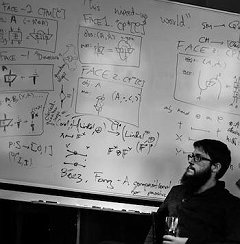(Cancelled) Process theories, string diagrams, and black box causal reasoning
It is a well-known platitude that correlation does not imply causation. Indeed the decline of piracy seems to have little causal effect on climate change, in spite of a strong correlation. However, in seminal work due to Pearl, Spirtes, Lauritzen, and others in the early 90s, it was shown (perhaps surprisingly) that under certain circumstances, it is possible to draw causal conclusions purely from observed statistical correlations. Since then, the field of statistical causal inference has given us a big bag of techniques for discovering and measuring causal effects, even in the presence of hidden confounders and selection bias.
In this talk, I will give a high-level perspective on causal discovery and inference problems using the language of process theories. A process theory gives us the bare minimum structure we need to talk about “black boxes” and the fundamental operation of “plugging boxes together” with wires. This enables us to, for example, treat classical statistical processes and quantum channels within the same framework. From there, we can introduce a couple of extra (statistically-inspired) ingredients which enable us to do calculations directly on the diagrams. Using these ingredients, I will work through a simple, classical example (smoking causes cancer), and show that with almost no modification that this extends to sound and complete conditions for causal inference in a fairly broad family of scenarios.
